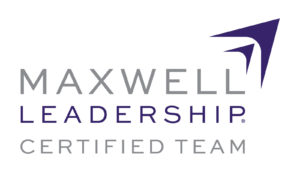
Effective communication begins with listening. – Simon Sinek
Years ago, while working in a University setting, I was part of a weekly staff meeting of two major departments of the school. Each week our respective departments came together to discuss projects we were working on and strategize over new ones, etc. In this meeting were two university vice presidents, department heads, and staff.
The work of our departments was both rewarding and challenging. In the staff meetings, however, it was not uncommon to get bogged down in the minutia of upcoming events or a crucial decision that could grind the meeting to a halt.
After ideas had been thoroughly shared and anyone and everyone with input into the topic had spoken, the last person to speak was always one of the vice presidents who sat quietly the whole time.
To an outsider looking on, one might suspect that he was simply uninterested in what was taking place and not engaged.
But when he spoke, he was able to cut through the clutter, see through the competing agendas, and speak words of wisdom to the topic at hand. Truth be told, he was likely the most engaged person in the room. How so? He sat quietly listening. He heard all the ideas being presented and could crystalize what needed to be said in the moment to move things along.
One might ask how he could bring such clarity to the room and leave everyone wondering why they didn’t think of what he just said. How was this possible each week with such consistency?
The simple answer? He always spoke last.
In your leadership, you will be called upon to speak. It comes with the territory. But in as much as you prepare yourself to speak – and you should – how well do you prepare yourself to listen? Should it not require the same preparation?
Here are a few thoughts for your consideration as it relates to listening. I trust that you will find them useful.
Ask engaging questions
As a leader, one of the most intentional things that you can do in order to best understand your people or what’s happening within your organization is to ask engaging questions. Once you do, now comes the work of listening.
The challenge is to listen without formulating a response to your people, but rather listening in order to relate to your people.
Understand this - Listening to respond or get defensive is about you. Listening to relate is about them. In leadership, you must always remember - it’s not about you. Click To TweetGive everyone a voice
Over the years, I’ve come to learn this truth – when the people have the ear of the leader, the leader will have the heart of the team. It’s a mutual trust that is earned and developed over time by listening with no hidden agenda.
By listening, you give your people a voice that empowers them and elevates their leadership. And while this is expedited by listening, how long do you suppose you this would take your people by only hearing you talk?
Understand this – Your impact as a leader can be just as effective if you listen more and talk less. It may not be as glamorous, but your impact as a leader is not always measured by your words.
Final Thoughts
Your words and actions in leadership carry weight. James 1:19 says, “…let every person be quick to hear, slow to speak, slow to anger.” This is where the wisdom of learning to speak last is born.
©2023 Doug Dickerson

 Leaders who are present in the moment and are actively listening stand to gain a lot of insight that would otherwise be missed. Leaders who are present are asking questions like: Currently, what is your greatest challenge? If you could change one thing, what would it be? As a team, do you believe that we are moving in the right direction? What do I need to know that I don’t? What are your growth goals and how can I help you achieve them?
Leaders who are present in the moment and are actively listening stand to gain a lot of insight that would otherwise be missed. Leaders who are present are asking questions like: Currently, what is your greatest challenge? If you could change one thing, what would it be? As a team, do you believe that we are moving in the right direction? What do I need to know that I don’t? What are your growth goals and how can I help you achieve them?








